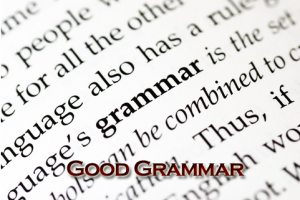In the IELTS test using any of the conditionals in your writing and speaking will improve the calibre of the contents.
The more complicated the conditional you use, the more impressive the substance of what you write or say will be.
There are many examples which we will be dealing with in future posts but, today, let’s consider the use of the second conditional.
What is a second conditional?
The second conditional (also called conditional type 2) is a structure used for talking about unreal situations.
Below, there is a brief and general explanation of its form and use and at the end of the post you will have the opportunity to reinforce your knowledge in a text with relevant gap fills.
Another way of describing the second conditional is that we use the second conditional to talk about imaginary situations and unlikely results.
Structure of the second conditional
A second conditional sentence consists of two clauses, an “if” clause and a “main” clause.
These can be either way around, e.g. “If I were a millionaire, I would buy a yacht” could also be written, “I would buy a yacht if I were a millionaire.” (This is 100% correct grammar but in spoken English we often say ‘If I was’ nowadays)
There is an ‘affirmative’ form or where there is not a ‘no’ in the sentence. This form is made by the ‘if’ clause and the ‘would’ clause.
If+past simple +would+ bare infinitive (the bare infinitive is the verb but without the ‘to’- ‘to go’ becomes ‘ go’ in the bare infinitive.
If = the conditional idea – here, the example below, the condition is Prime Minister
Yes/Affirmative form
If you were (past simple) Prime Minister, would you make (bare infinitive ) cuts to the NHS?
To check that you understand you ask these questions:
Are you the Prime Minister? – No
Is it likely that you will be Prime Minister? – No
(imaginary/unlikely situation – THE CONDITION)
There is a ‘negative’ form, where there is a ‘no’ idea in the sentence:
This can be
If +negative past simple (didn’t)
Or
Negative would (wouldn’t)
Negative/No
If Britain didn’t (negative) have a Prime Minister, do you think British Citizens would prefer a President?
To check that you understand you ask these questions:
Has Britain got a Prime Minister? – Yes
Is it likely that Britain would prefer a president?
(imaginary/unlikely situation – THE CONDITION)
As always, the best way of reinforcing this brief grammar lesson is to try some for yourselves.
Try answering the following questionnaire using the second conditional. The first question is answered for you as an example.
Questionnaire – How honest are you?
1. If you (find) _found_a wallet in the street,
a)____would _______ you (pick) it up and keep the money?
b)___would ___you (take) the wallet to the Police Station
c) ___would________you (leave) it there?
Write your answer in a complete sentence.
If I found a wallet in the street, I would take it to the Police Station.
2. If you (see) ___________ your friend kissing somebody who wasn’t her boyfriend,
a)__________ you (tell) her boyfriend?
b)__________ you (think) ‘Lucky Woman’?
C)__________you (tell) her that she had to stop?
Write your answer in a complete sentence.
3. If your girlfriend (put) on weight and asked if she should go on a diet,
a) __________ you (tell) her a lie?
b) __________you (say) yes?
c) __________you (explain) that you love her as she is?
Write your answer in a complete sentence.
4. If your husband’s mother (keep) interfering in your marriage
a) ___________ you (ignore) the fact?
b) ___________ you (get) angry with her?
c) ____________you (expect) your husband to sort the problem out?
Write your answer in a complete sentence.
5. What _________(do) if your friend (want) _________to ring in sick but was going to a pop concert?
a) Ask him not to?
b) Explain that you will tell the boss?
c) Go with him?
I will post the model answers to the questions in the comments section of this post in day or so.
Do try to include complex grammar in your IELTS Test writing and speaking. It will earn you extra marks and could make the difference between achieving Band 6 or Band 7+. If you do use it, though, it must be used accurately to be effective.
To your IELTS success,
James
P.S. When you are preparing for the IELTS Test, get your IELTS Writing Task 2 or Task 1 essays corrected and marked by our qualified IELTS professionals, please CLICK HERE to find out more about our Essay Assessment Service.


Leave a Reply